 Data Scientist Career Path from Novice to First Job
Data Scientist Career Path from Novice to First Job
If you are beginning your data science journey, then you must be prepared to plan it out as a step-by-step process that will guide you from being a total newbie to getting your first job as a data scientist. These tips and educational resources should be useful for you and add confidence as you take that first big step.
We recently had a blog where I talked about 18 online resources to learn data science. Obviously, 18 is too many for a single person, and not all the platforms are relevant to you depending on your experience level and where you are in your journey.
So, what I want to do is break down your data science journey or a career path to data scientist into different stages based on experience and goals and recommend a few online resources to help you in the stage you're at in your career path to data scientist.
What I did was talk to a bunch of data scientists in the community and ask them about their journey, and collected a few recommendations for online resources that have helped them along with their careers. And then I matched that information with my data scientist career path and the resources I used to become a data scientist.
What I’d like to do is share with you a 4-step data science journey from complete novice to landing a data science job and resources you can use for each step in your data scientist career path.
Four Stages of Data Scientist Career Path
What I've collected from talking to the community as well as reflecting on my journey myself is that your career path as a data scientist can be broken up into four different stages. Going from a complete novice to get a data science job, these are the four stages:

1. Learning syntax and tools
Learning syntax and tools is the first exposure in the career path to data scientist.
What your goal in this stage is:
- to understand what some of the problems are in data science
- to see if you like that type of problem
- to see if you like coding
- to see if you like the platforms and tools a data scientist would use
The whole point of the stage is to learn how to code, statistics and math, modeling, all of the theory, and to test out the tools and platforms that you'd be using on the job. At this stage, everybody is a beginner. So, you may have come out of university, or you might still be in school, or you may have switched careers, but you might only have one or two coding classes underneath your belt, or you may not have any coding experience at all, but this stage is to get some exposure about platforms, code and data science type of problems.
So the online resources that you want to leverage to learn and get exposure to data science would actually be in the bottom part of the below graph where you are a beginner user:
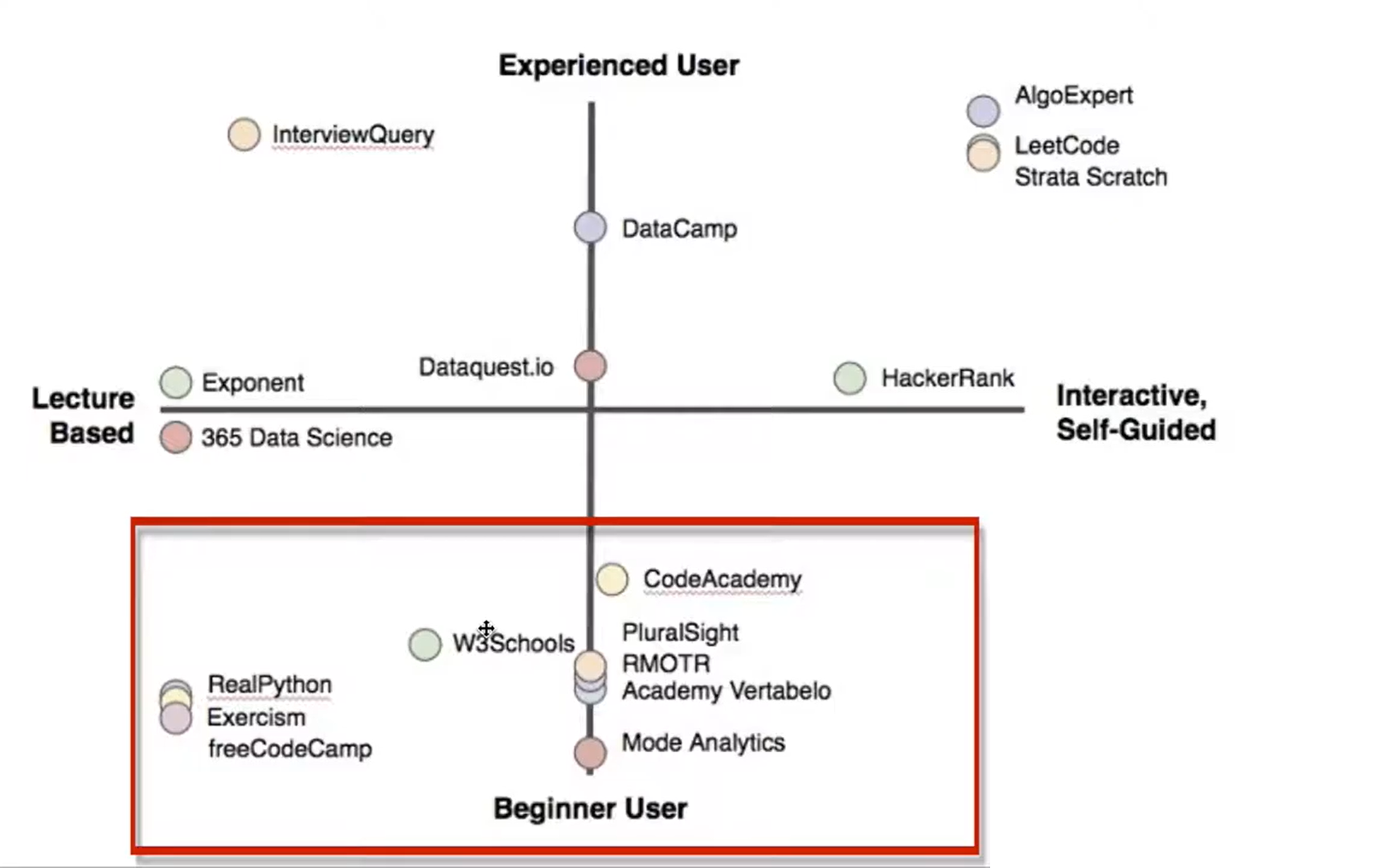
I myself started with mode analytics that helped me learn SQL and Python pretty well to some extent before I had to switch to the next platform to take me up another level. But in the first stage, as you are getting exposure, any one of these platforms down in the above graph would help you gain exposure to coding and data science type of problems.
In addition to mode analytics, I would also recommend complete data science courses offered from Coursera or Udemy to give you the exposure and to understand whether or not you are interested in data science.
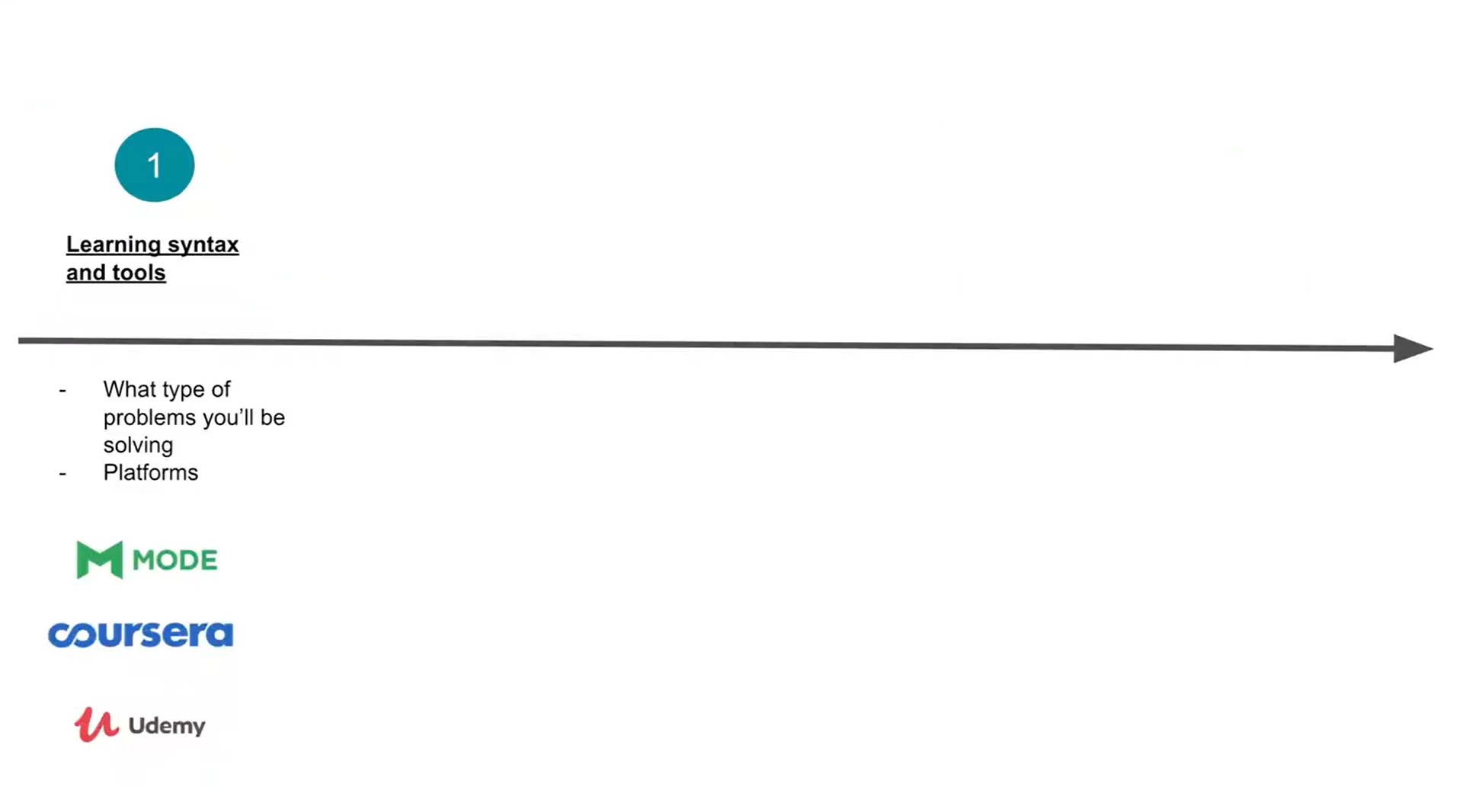
Now you've learned the tools and a little bit about the types of problems you would deal with in data science, and you want to get out of tutorial mode and get into something a little bit more complicated. This brings you to stage two.
2. Try Something More Complicated
In stage two, what you'll do is get out of tutorial mode and get into the topics that are a little bit more specialized for the industry or the type of data science you want to get into.
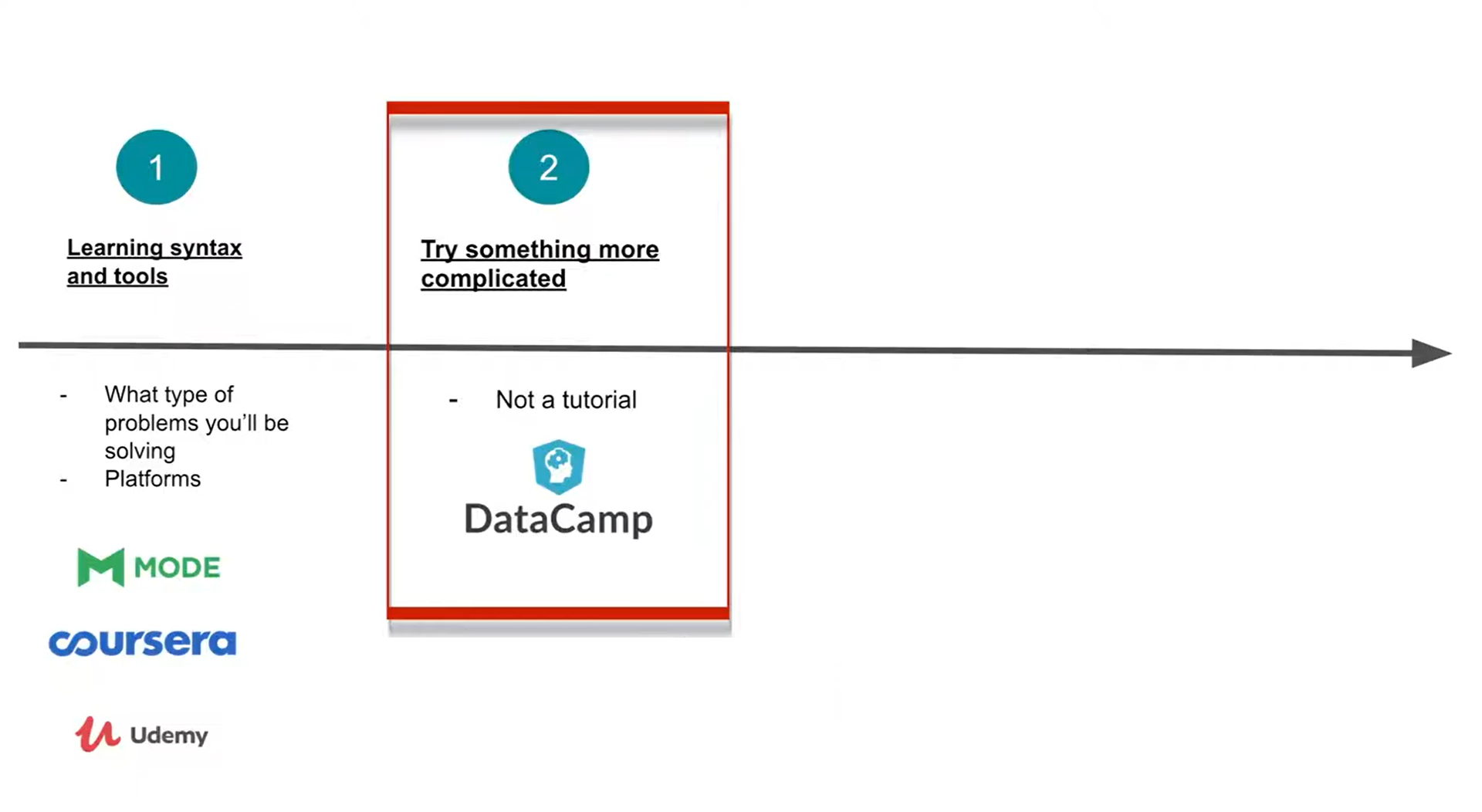
For me, DataCamp is what got me out of the tutorial mode. They have a bunch of specialized topics that allow me to leverage data science topics like developing a machine learning model and specialize or apply that to something more in a specific industry that I was interested in going to.
If you take a look at some of the other recommendations in the below graph, not only do we have DataCamp, but we also have other online resources like CodeAcademy, StrataScratch, and LeadCode.
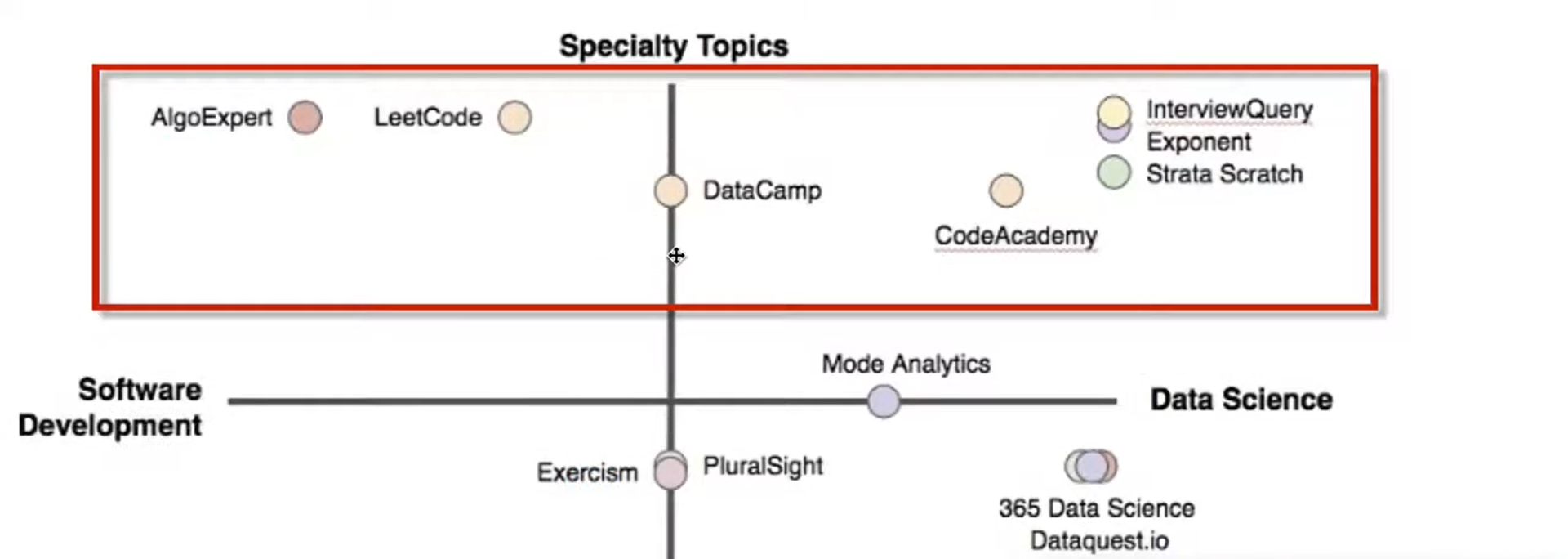
All these platforms help you upskill on specialty-type topics that you could apply to either data science or software development.
In this stage of the data scientist career path, not only you’re trying to get out of tutorial mode and get into something a little bit more complex and complicated but what you're also doing is you're trying to learn what a career in data science actually means.
To learn a little bit more about this, what I and some of my colleagues did in this data science community is to then learn from others like from YouTube, Reddit, and other discussion forums that might be available out there.
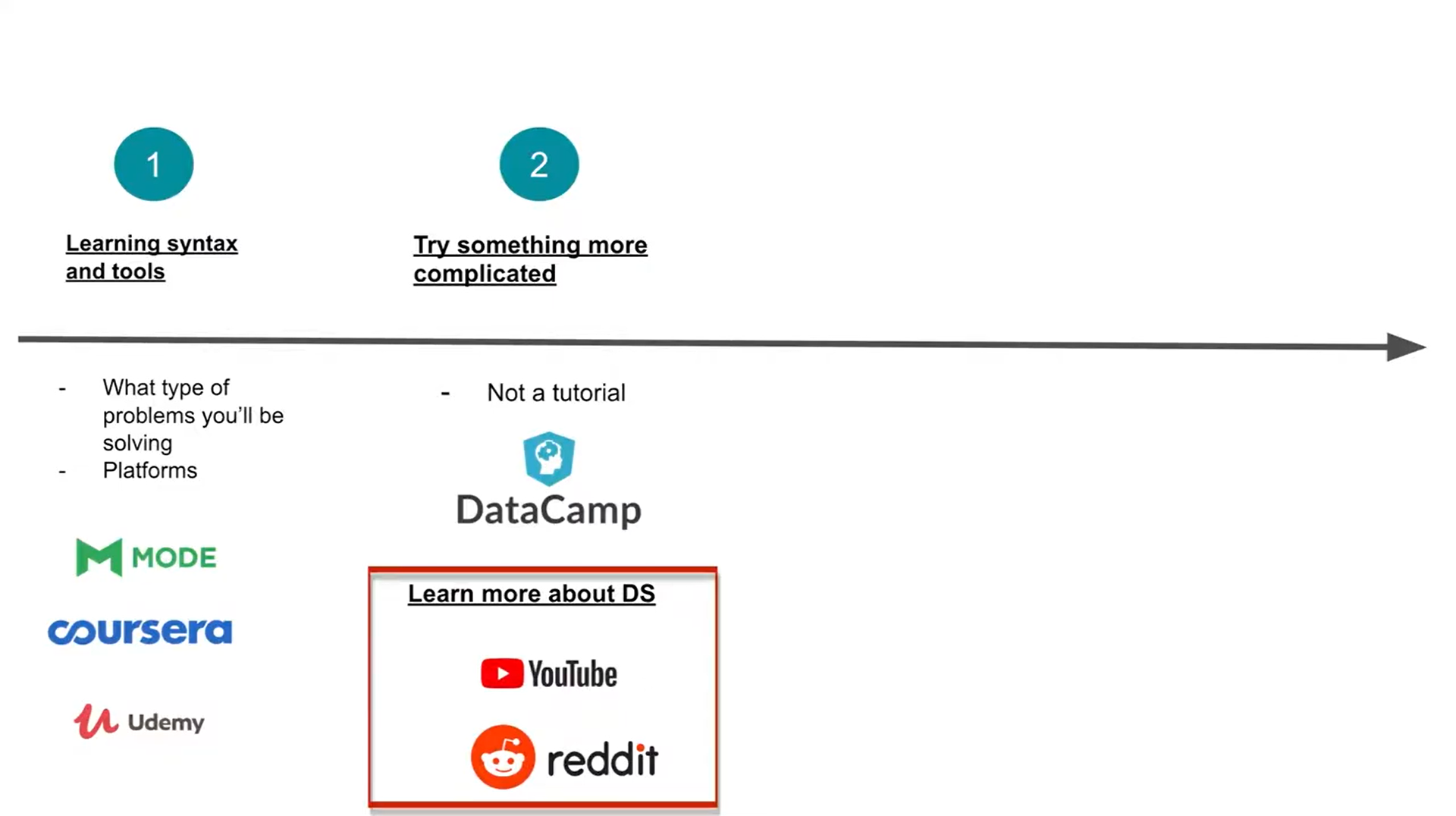
The purpose of watching YouTube videos or lurking at some of the Reddit posts is to learn about what problems other data scientists are experiencing and being exposed to. This is how you can understand what a career in data science might feel like and what you might experience in the future.
In summary, stage two in the data science career path is about getting out of tutorial mode and getting into data science topics that are a lot more complicated and complex that you can eventually apply to your job. In addition to that, it's about going to discussion forums like Reddit or watching YouTube videos of other data scientists to understand what their experiences are like, as this will make you able to envision what a data science career might look like on your end.
Now you're a little bit better at data science and coding, and you’ve learned a little bit about what the career might look like as a data scientist, and you're excited to become one. Let’s move forward to our third stage of the data scientist career path.
3. Get Serious
The third step in the data science career path is for those that have decided to actually enter data science as a career and to finally get serious. Now, what you have to do is get out of these educational platforms like DataCamp and get into doing projects that will test your skills from end to end.
For that use case, you want to try out non-educational platforms like Kaggle to do some of the projects and to rank yourselves against other data scientists.
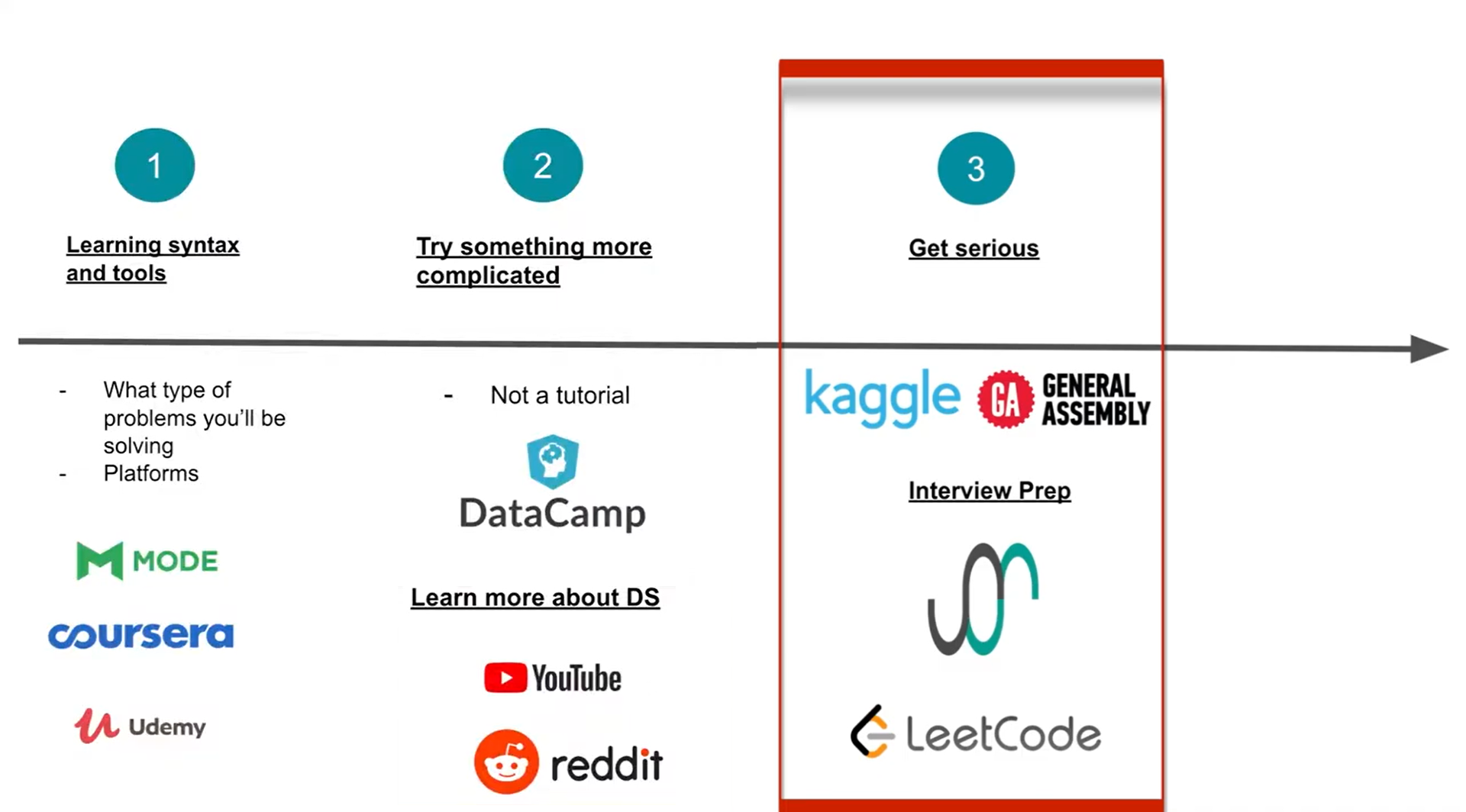
If you feel that you don't want to do Kaggle and want to do an online or an in-person data science Bootcamp, then General Assembly is a very popular one where they'll teach you how to get into data science.
Then obviously, once you're done with Kaggle, or you're done with the boot camp, you want to interview prep to become a data scientist. You definitely then should try one of these interview prep platforms like LeetCode or StrataScratch.
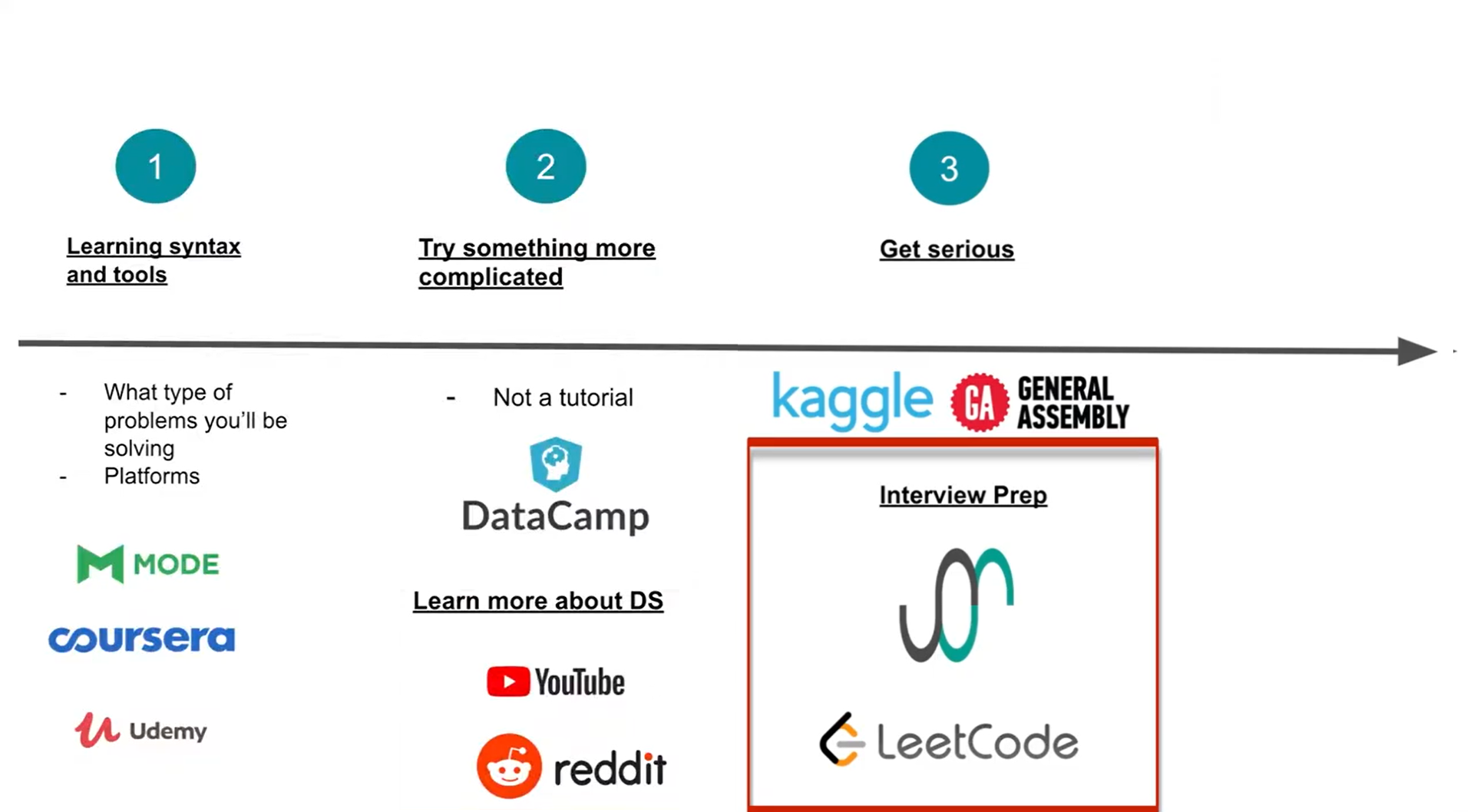
On these platforms, you’ll find a ton of data science interview questions from real companies that can get you the practice that you need to be successful in the interviews.
In this stage, the goal is to get a lot more serious about becoming a data scientist. What you should do is refine your skills so that you can work on projects, you can make a meaningful impact, and you can answer and solve questions in a data science interview very quickly and without a lot of struggle. So, what you need is a lot of practice at some of these projects and interview questions.
Now the only thing missing is landing a job and getting paid to become a data scientist who takes us to step four of the data scientist career path.
4. First Job
If you haven't had any industry or professional experience or a job as a data scientist before, getting out of stage three can be tough. So, what you need to do is take stage three seriously. Prep and study as much as possible so you know coding and answering these technical questions. It will make you able to apply those skills when you land your first job.
In this stage, what you're looking forward to is an understanding of what type of projects interest you. Being a data scientist, there are many different types of roles and many different types of data scientists.
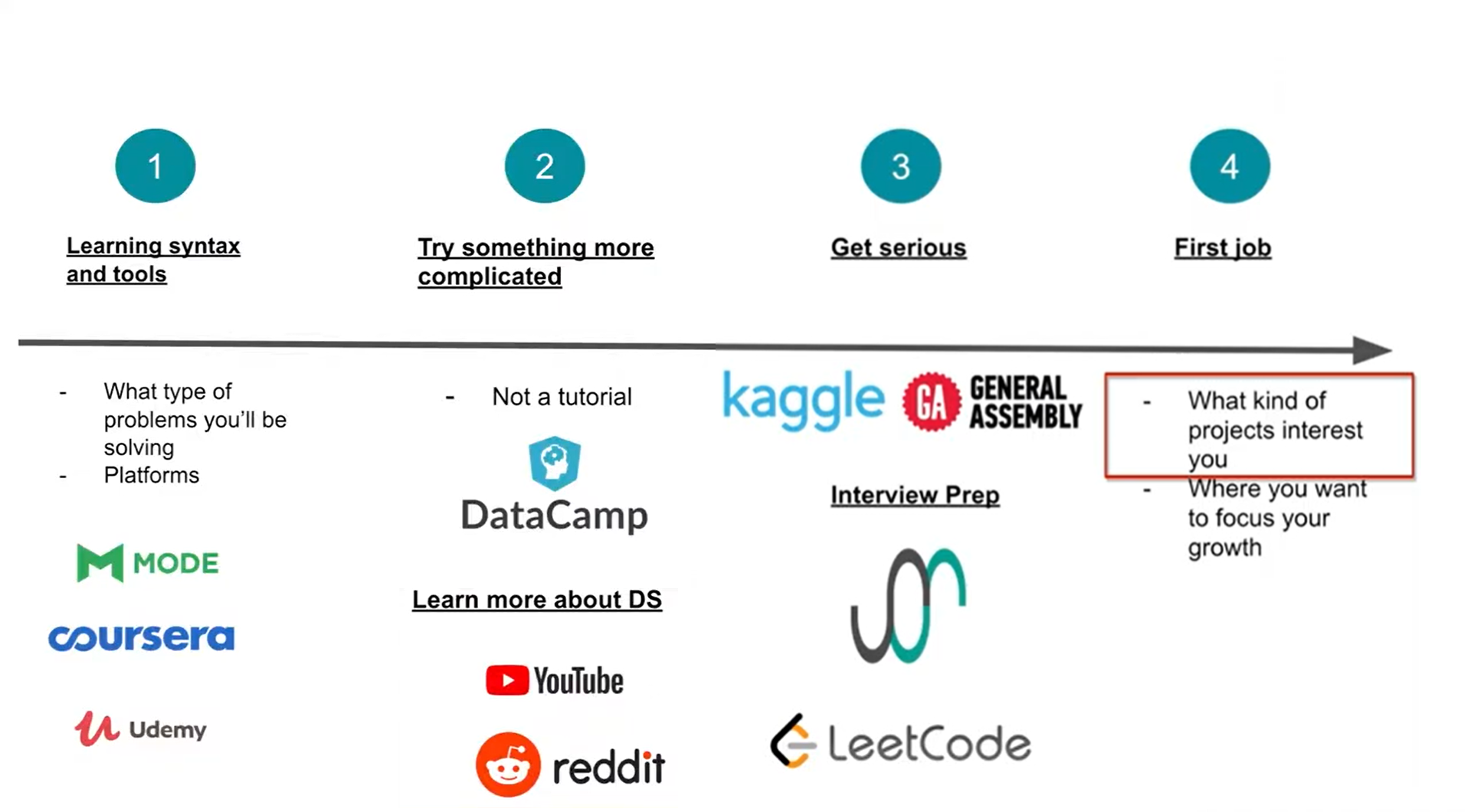
You could be creating recommendation engines every single day, you can be deploying things to production or keeping things on the development servers, you can be creating data pipelines, you can do more like R&D type of analyses or whatever it is. In the beginning years, you're going to probably do them all, and then as you specialize and grow into your career, you might just do less and just be more specialized in certain roles.
In this stage of a data scientist career path as your first job, the whole point is to understand what you like and what kind of roles and responsibilities you enjoy doing as a data scientist.
Conclusion
Now that we've gone over a typical data scientist career path, I do have to say that not all data science journeys are the same. This is essentially a collection of common stages and themes that I picked up when talking to a few data scientists in the community as well as reflections on my own journey.
I'm guessing that you are on stages one to three, and you're trying to figure out a way to land your first data science job. So, what I would recommend is, depending on what stage you're in, select a few online resources to help you in that stage and help you get to the next level. Stage four is really where we want to end up being professional data scientists.
I hope this was helpful, and you understand where you might fit in this journey and what you need to do to get to the next stage or next level.
Original. Reposted with permission.
Related:

 Data Scientist Career Path from Novice to First Job
Data Scientist Career Path from Novice to First Job